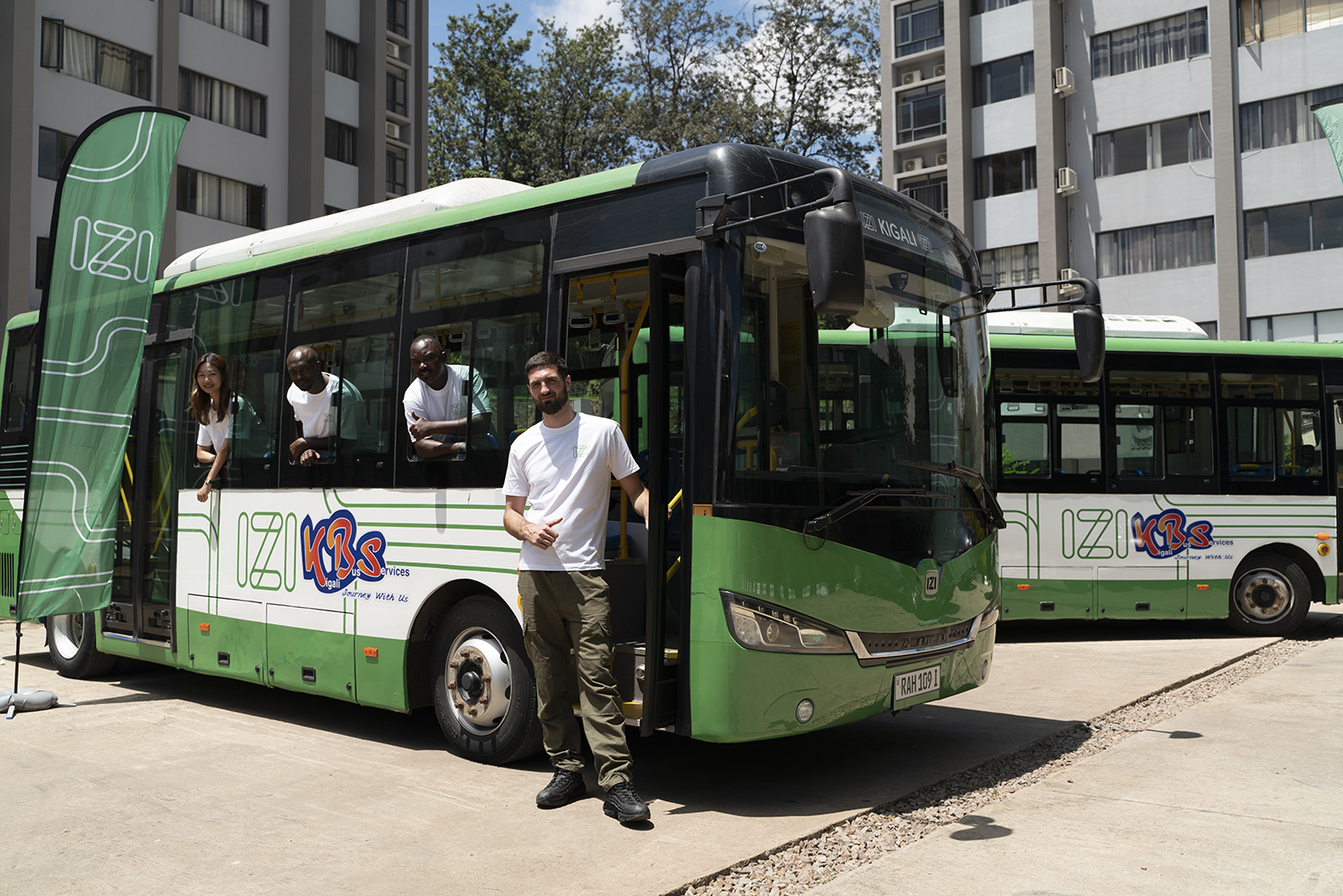
Rwanda is set to host the World Cycling Championships from September 21 to 25, 2025. This major event will demonstrate the important role that cycling plays in modern Rwandan culture. But beyond sport, cycling is also a means of transport. In cities and rural areas, bicycles are widely used for getting around and for transporting agricultural products, water cans, gas cylinders, furniture, and so on. While the hills of Kigali attract cyclist champions from around the world, they pose a real challenge for everyday cyclists, who do their utmost to climb ... or avoid them. ALSO READ : Traffic management in Kigali: A matter of priority! Meanwhile, utility bicycles are undergoing a minor revolution elsewhere in the world, with sales of electric-assisted bicycles having risen steadily for over a decade. In 2024, this growing market will be worth around USD 50 billion. These bikes, which are equipped with a battery and a small motor that activates when the cyclist pedals and disengages when they reach 25 km/h, are becoming increasingly popular with households and professionals in Asia, Europe, and North America. They enable you to climb hills or travel long distances at an average speed of 20–25 km/h with minimal physical effort. They are therefore becoming an inexpensive alternative to cars in cities where traffic jams are common. They cater for people's desire to protect the environment and their need for more physical activity. ALSO READ: Can Kigali become a cycling city thanks to the world cycling championships? Could Rwanda be one of the first African countries to join this global trend? Could electric bikes offer a more affordable and healthier alternative to public transport or motorbike taxis? These are some of the questions we sought to answer as part of a project at the University of Rwanda-College of Science and Technology. ALSO READ: Kigali Rides: A cycling initiative to promote adventure, healthy lifestyle Since December 2024 to March 2025, students at University of Rwanda have had access to 10 electric bikes – E-Bee brand – thanks to funding from the European Union Programme called SOLUTIONSplus. To make these bikes accessible to everyone, students organised themselves to make the bikes available to users on a weekly basis. About 10% out of a total of 6,000 students (31% female and 69% male) enrolled at the University of Rwanda College of Science and Technology were interested in trying out this new mode of transport for a week. During the academic year, 160 students (including 12% women) were able to use these bikes free of charge. They were interviewed after a week's trial to gauge the potential of this mode of transport. Conclusion: more than two-thirds (72%) of users would be willing to adopt e-bikes on a daily basis because of the time and money saved... hoping for favourable public policy. Each district of Kigali accounted for about one-third of the students surveyed. The majority of those who live in Nyarugenge walk to campus (76%); those who live in Kicukiro use either the bus (68%), moto-taxi (26%) or walk (6%); while those from Gasabo travel by bus (54%) or motorcycle taxi (46%). The main beneficiaries are public transport users travelling distances of more than 3 km. Using an electric bike saves them time and money. Students who usually walk to school complete the journey four times faster. Those who walk more than 2 km save at least 30 minutes on each journey. Public transport users, most of whom travel between 3 and 10 kilometres, also save between 30 and 60 minutes per trip. However, 58% of them save also between Rwf500 and Rwf1,000 per day. While there is no time saving compared to motorbike taxis, using electric bicycles clearly represents a financial gain: 62% of traditional motorbike users save between Rwf500 and Rwf1,000 per day, while 36% save between Rwf1,000 and Rwf1,500. These daily savings in time and money have directly increased students' mobility. 62% of those surveyed said they had made additional trips thanks to the availability of bicycles (this figure rises to 75% for public transport users). This has enabled them to visit relatives (53%), go shopping (38%), or engage in professional activities (29%). While more than two-thirds of students who have tried electric bicycles say they are willing to use this mode of transport as their primary means of transport, respondents clearly identify certain constraints: safety (66%), physical discomfort – mainly due to sweating – (54%) and the cost of purchasing the bike. Thus, the development of cycle paths is the first action suggested to promote the use of electric bicycles, followed by the development of programmes promoting access to these bikes (bike sharing, etc.) and the integration of these services with the public transport system. The development of other facilities for cyclists (showers, parking, etc.) has also to be envisaged. As Kigali seeks solutions to chronic congestion, the development of electric bicycles should be considered. The opening of new cycle paths in the wetlands currently undergoing rehabilitation could open up new era for active mobility. This article highlights the results of an academic project titled “Exploring Public Readiness and the Likelihood of Shifting to E-Bee Bicycles in Kigali” done by Emile Rubona, Ivan Muhizi, and Galina Ishimwe, for the award of Bachelor of Science (hons) in Transportation Engineering by University of Rwanda’s College of Science and Technology, during the academic year 2024-2025. Julien Allaire, who is based in Kigali, is the Director of International Operations at Transitec Consulting Engineers, an independent engineering consultancy firm specialized in urban mobility.
Provided by SyndiGate Media Inc. (Syndigate.info).